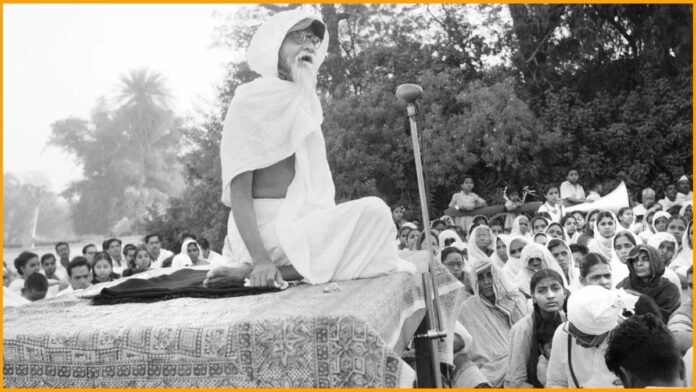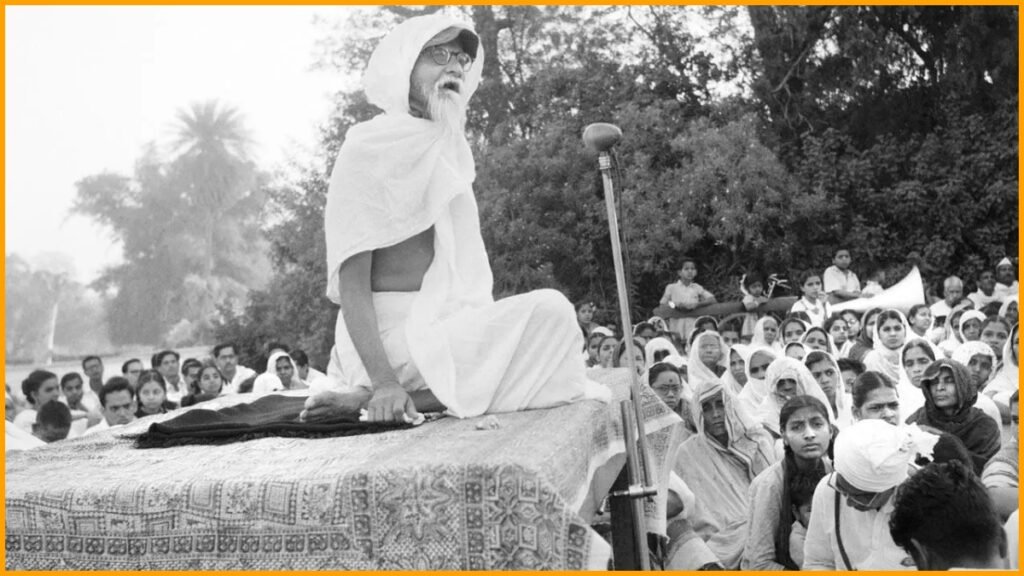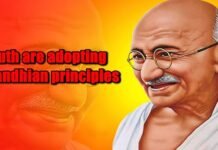
New Delhi: Today marks the death anniversary of Vinoba Bhave, one of India’s revered social reformers and ardent followers of Mahatma Gandhi. Born Vinayak Narhari Bhave, he became widely known as Vinoba Bhave and was celebrated as the “National Teacher of India” for his unwavering dedication to social service, non-violence, and spiritual self-knowledge.
A Disciple of Gandhi’s Ideals
Vinoba Bhave was deeply inspired by Mahatma Gandhi and devoted his life to the principles of non-violence, truth, and equality. For him, social change was not limited to external reforms but required an inner transformation in individuals. He emphasized that a peaceful society is only possible when people embody these values in both thought and action.
The Bhoodan Movement: A Visionary Step for Land Equality
One of Bhave’s most impactful contributions was the Bhoodan, or “Land Gift” movement, which he initiated in 1951. This movement aimed to combat land inequality and improve the lives of impoverished communities by redistributing land. Bhave traveled across India, appealing to wealthy landowners to donate portions of their land for the benefit of the landless poor. Through this initiative, thousands of acres were donated and distributed, significantly raising awareness about land rights and the stark need for social and economic justice in rural India.
Bhave believed in the equal distribution of resources as a fundamental step toward justice and equity in society. His dedication to this cause helped shed light on India’s land ownership disparities and inspired numerous others to advocate for poverty reduction through peaceful means.
A Champion of Non-Violence in Mind and Action
Vinoba Bhave’s philosophy of non-violence extended beyond physical acts. He believed that true non-violence began with a calm mind and the rejection of violent thoughts. For Bhave, external peace was insufficient if people harbored anger or hatred internally. He advocated for self-discipline, asserting that a truly non-violent society required individuals to cultivate peace within themselves.
Fearlessness and Humility as Tools for Progress
Bhave’s principles also included the notion of “fearlessness in progress and humility in security.” He encouraged people to be courageous in their efforts toward positive change, tempered by a sense of humility that fostered inner peace. For Bhave, fearlessness was essential for effective action, while humility provided the balance needed for personal fulfillment and societal harmony.

Honors and Legacy
Vinoba Bhave’s lifelong commitment to social reform earned him the prestigious Ramon Magsaysay Award in 1958, recognizing his efforts in community leadership and non-violent activism. In 1983, he was posthumously awarded India’s highest civilian honor, the Bharat Ratna, for his invaluable contributions to the nation.
Today, Vinoba Bhave’s teachings and his transformative Bhoodan movement serve as enduring reminders of the power of selflessness, inner peace, and fearless pursuit of equality. His life remains an inspiration, urging us to strive for justice and kindness in our communities.












































